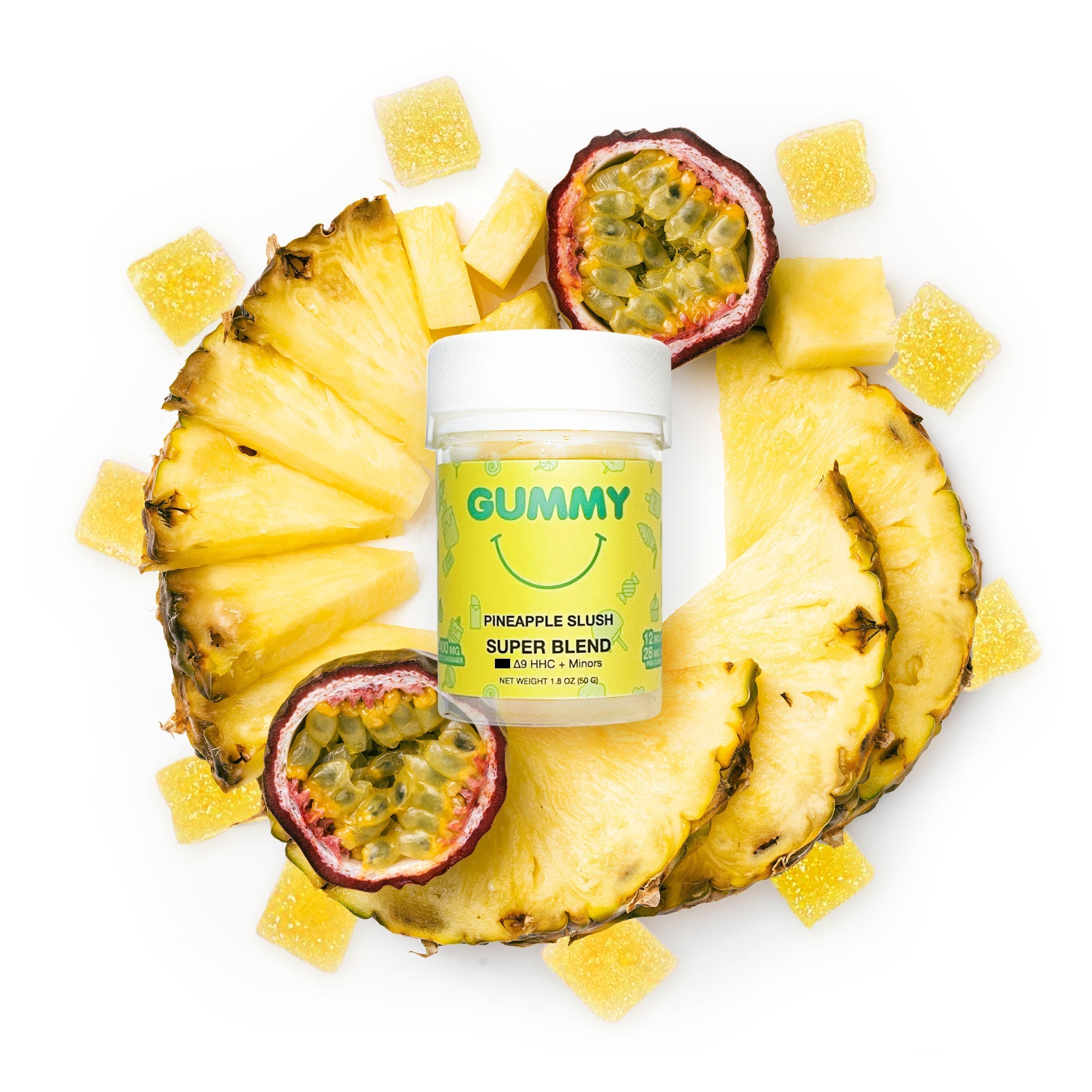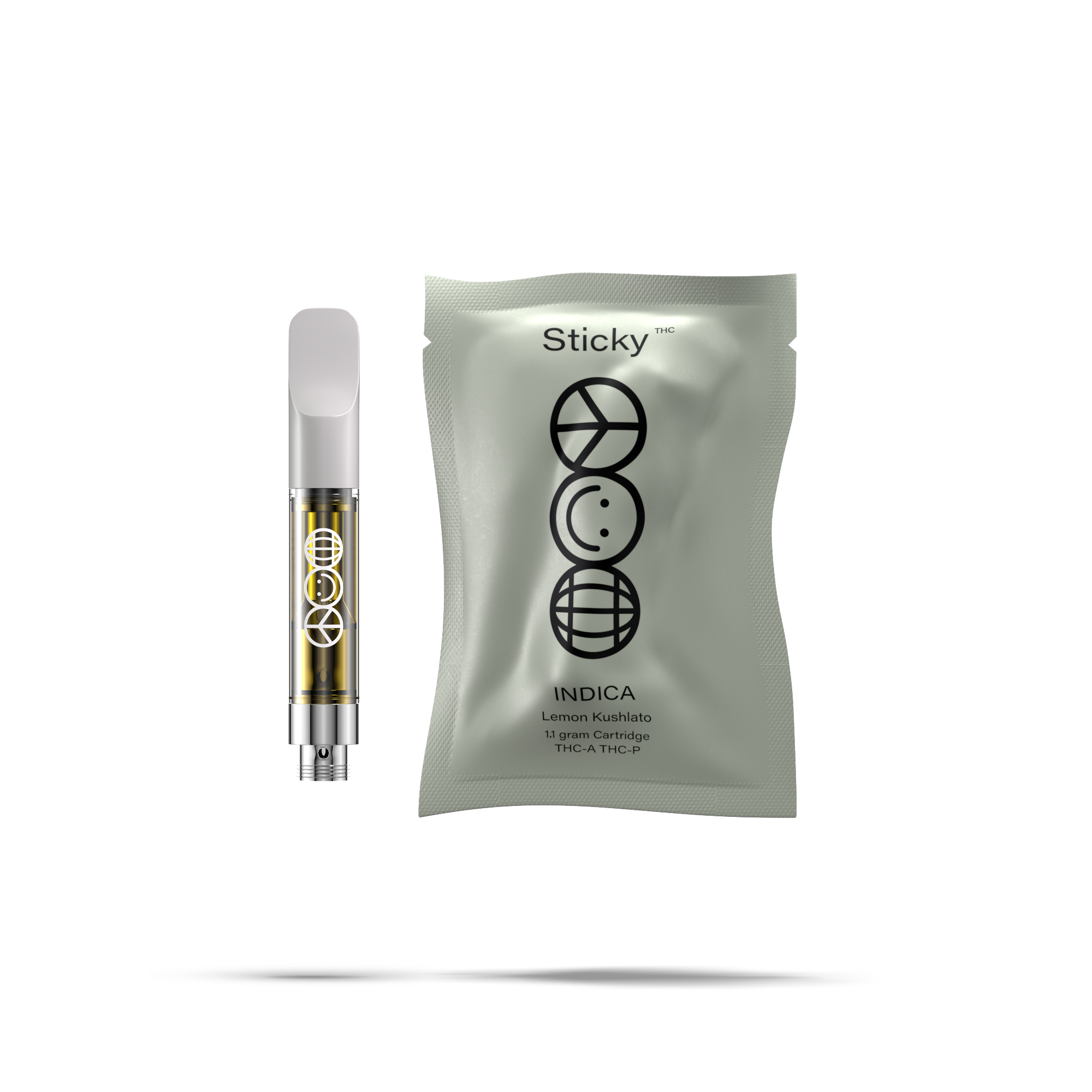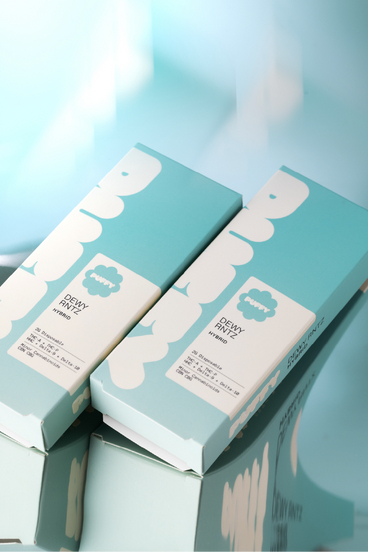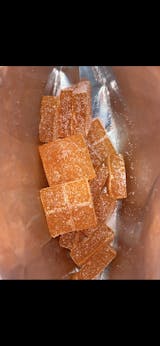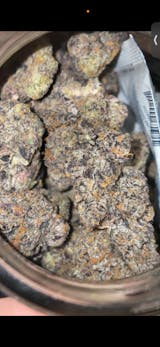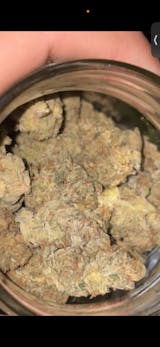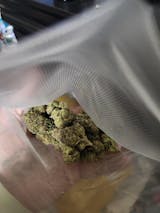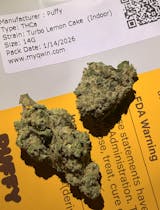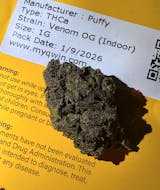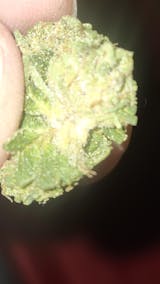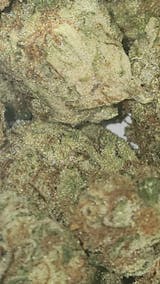Table of Contents
THCA vs Delta 8 Extraction Process Chemical Structure The Differences in Effect Profiles Dosage Comparisons Differences in Legality and Availability Final Takeaways
The difference between THCA and Delta-8 lies in these alternative cannabinoids’ effects, uses, and legality. THCA is non-psychoactive until heated, while Delta 8 offers a mild high. People love THCA for its therapeutic benefits and mind-altering potential, while Delta 8 is prized for a gentle, manageable buzz.
Delta 8 and THCA are leading the alternative cannabinoids market, which has seen a stunning 1,283% growth in the last three years. Comparing these popular compounds matters because they exhibit distinct chemical profiles that consumers need to understand to find the right products.
This article thoroughly examines THCA vs Delta 8 properties, psychoactive profiles, benefits, legal statuses, and ingestion methods.
What Are THCA and Delta-8?
THCA and Delta-8 are two cannabinoids derived from hemp and cannabis. THCA is the inactive precursor to regular THC (Delta-9 THC) that occurs prominently in young and freshly harvested plants. Delta-8 THC, on the other hand, is a minor psychoactive cannabinoid that occurs only in trace quantities.
THCA: Definition, Origin, and Properties
THCA, or tetrahydrocannabinolic acid, is a non-psychoactive cannabinoid that appears abundantly in fresh cannabis before the plant is exposed to heat. Heating cannabis through smoking, vaping, or cooking ignites a chemical transformation called decarboxylation, which transforms THCA into mind-altering THC.
Raw (unheated) THCA has powerful therapeutic properties, including:
- Anti-inflammatory
- Neuroprotective
- Anti-emetic (anti-nausea)
Delta-8: Definition, Origin, and Properties
Delta-8, or Delta-8 tetrahydrocannabinol, is a minor cannabinoid naturally present in tiny amounts in cannabis. It is an isomer of Delta-9 THC, which means they share similar chemical structures but with slight differences that make Delta-8's psychoactive effects slightly less potent.
Delta-8’s properties include:
- Relaxing
- Soothing
- Appetite-stimulate
- Mildly euphoric
- Pain-relieving
Due to Delta-8's scant presence in plants, manufacturers typically create products semi-synthetically rather than through natural extraction. The process entails converting hemp-derived CBD into Delta-8 through a chemical reaction.
Key Differences Between THCA and Delta-8
THCA vs Delta-8 differ significantly in psychoactivity, molecular structure, and how they interact with CB1 and CB2 receptors in the body’s endocannabinoid system (ECS). The ECS is a neuromodulatory system that helps regulate sleep, mood, appetite, pain perception, and stress.
Psychoactivity:THCA is completely non-psychoactive in its raw form until decarboxylation transforms it into Delta-9 THC. Delta-8, by contrast, is mildly intoxicating, offering a gentler high that some compare to an Indica strain.
Molecular Structure and Conversion:
THCA is an acidic form of Delta-9 THC with a pentyl (5-carbon) side chain and an additional carboxyl group (cluster of carbon, hydrogen, and oxygen atoms). This structure renders THCA inactive until heat exposure removes the carboxyl group and converts it into THC.
Delta-8 is an isomer of Delta-9 THC, meaning it has the same number of atoms but is arranged differently. Its key difference is the position of a double bond between two carbon atoms, which occurs on the eighth carbon in Delta-8 instead of the ninth carbon in Delta-9, giving it slightly milder psychoactive effects.
Interaction with CB1 and CB2 Receptors:
THCA weakly binds with and activates CB1 receptors in the nervous system’s peripheral tissues while reducing activity at CB2 receptors in the immune system. These mechanisms bolster immunity and reduce inflammation without eliciting psychoactive effects. Delta-8, conversely, binds with relative strength to CB1 receptors in brain regions responsible for cognitive and sensory processing. This connection alters normal communication between neurons and changes everyday perception.
Benefits of THCA
THCA vs. Delta-8 benefits are distinct due to THCA’s receptor function and therapeutic properties. Many researchers highlight THCA’s anti-inflammatory, neuroprotective, and anti-nausea capabilities as significant contributions to health and wellness.
Research on Anti-Inflammatory Properties: Studies suggest THCA exhibits strong anti-inflammatory effects, which may benefit people with chronic conditions like arthritis or inflammatory bowel disease (IBD). THCA’s ability to reduce inflammation without psychoactivity makes it a preferred option for daily use by those seeking relief without impairment.
Neuroprotection: Preliminary research indicates that THCA protects brain cells and supports cognitive health. This neuroprotective potential suggests that THCA may provide supplementary support for Alzheimer’s or Parkinson’s disease treatments by reducing oxidative stress and inflammation in the brain.
Anti-Nausea Effects: THCA has also shown significant anti-nausea and vomiting properties, even more potent than Delta-9. THCA’s anti-emetic properties could make it a valuable option for patients undergoing chemotherapy or dealing with severe gastrointestinal issues.
Benefits of Delta-8
Delta-8 provides several benefits due to its mild psychoactive effects and therapeutic potential. Consumers appreciate Delta-8 for relaxation without overwhelming intensity.
Mild Euphoric Effects: Delta-8 produces a gentle high that is less intense than Delta-9 THC, making it a popular choice for people seeking a mood lift without anxiety or paranoia. Its balanced psychoactivity appeals to novice and experienced cannabis fans alike.
Anti-Nausea and Appetite Stimulation: Delta-8 exhibits anti-nausea and appetite-stimulating properties, similar to Delta-9 THC. These properties could make Delta-8 practical for patients undergoing chemotherapy or those with chronic illnesses or eating disorders.
Anxiety Relief: Delta-8’s milder euphoric and soothing effects make it popular for reducing anxiety. Fans report a calming effect that helps manage daily stressors without significant sedation.
Pain Relief: Many people report that Delta-8 offers significant relief, particularly for chronic pain, without the intensity of stronger THC products.
Sleep Support: Some people substitute Delta-8 for melatonin or other sleep aids, highlighting its ability to promote restful sleep without a heavy "hangover" effect.
How to Consume THCA and Delta-8
THCA and Delta-8 can be consumed in various forms, including raw leaves, smokable flowers, tinctures, vapes, capsules, and edibles.
THCA Consumption Methods
- Raw cannabis: THCA can be consumed in its raw form by eating fresh cannabis leaves or flowers or blending the plant into smoothies or juices.
- Tinctures: Cold-pressed THCA tinctures, or unheated cannabis extracts, can be taken sublingually or added to food or drinks for ease of use.
- Capsules: THCA capsules are pre-measured doses of THCA in a pill-like form. They provide a convenient and consistent way to consume THCA without any preparation.
- Smokable THCA Flower and Vapes: THCA is also available in smokeable flower and vapes. These methods convert THCA to THC and produce a traditional cannabis high.
Delta-8 Consumption Methods
- Edibles: Consumers enjoy Delta-8 edibles like gummies, chocolates, or capsules for a discreet and flavorful experience. These products provide longer-lasting effects and typically take 30 minutes to 2 hours to kick in.
- Vapes: Delta-8 vapes offer a fast and convenient way to experience its effects. The vapor is absorbed directly into the bloodstream, allowing users to feel the effects almost instantly.
- Concentrates: Delta-8 concentrates, such as distillates or wax, provide a powerful and efficient way to consume the compound. These products work best with dab rigs or vaporizers, allowing for precise dosing and intense effects.
- Smokable Flower (with D8 Distillate): Smokable hemp flower sprayed with Delta-8 distillate combines the classic smoking experience with enhanced potency. Users can roll it into joints or use pipes and bongs for a customizable method of consumption.
Comparison Methods of Consumption
Cannabinoid |
Raw Flower |
Edibles |
Vapes |
Concentrates |
Smokable Flower |
Capsules |
THC-A |
Yes |
No |
No |
Yes (cold-pressed) |
No |
Yes |
Decarboxylated THCA (aka THC) |
No |
Yes |
Yes |
Yes |
Yes |
No |
Delta-8 |
No |
Yes |
Yes |
Yes |
Yes (distillate sprayed) |
Yes |
Legality of THCA vs. Delta-8
The difference between THCA and Delta-8 from a compliance perspective is that THCA is federally legal in its raw form but becomes controversial upon decarboxylation. Delta-8 is legal federally when derived from hemp but faces restrictions in many states.
- THCA Legality: THCA in its raw form is federally legal under the 2018 Farm Bill, as long as the Delta-9 THC content in the product does not exceed 0.3% on a dry weight basis. However, once THCA is heated and converted to THC, its legality shifts to a gray area. The DEA recently said THCA does not align with the legal hemp definition. However, the Farm Bill’s language is unclear. The bottom line is that most states allow smokable THCA sales.
- Delta-8 Legality: Delta-8 THC’s legality depends on state laws. Federally, Delta-8 derived from hemp is permitted under the Farm Bill, but many states have banned or restricted Delta-8 due to its psychoactive effects. To ensure compliance, consumers must double-check local regulations before purchasing Delta-8 products.
THCA vs. Delta-8 for Different Uses
THCA and Delta-8 cater to different needs. Raw THCA is best suited for therapeutic applications, while Delta-8 is better for recreational and stress-relieving purposes.
- Medical Uses: THCA research indicates that it could help manage chronic inflammatory pain, reduce inflammation, improve brain health, and reduce nausea and vomiting without impairment. Decarboxylated THCA, or THC, provides therapeutic benefits like pain relief and sleep support, along with a mind-altering high.
- Recreational Uses: Delta-8 creates a mild high, offering gentle euphoria and relaxation. Many prefer Delta-8 for unwinding socially or resting after a long day. It can help destress, relieve pain, and support easier sleep.
Safety, Side Effects, and Risks
Delta-8 fans report lower incidences of anxiety, paranoia, and "couch-lock" compared to Delta-9 THC. However, Delta-8 can produce adverse effects like lung irritation when inhaled and cognitive impairments. Long-term, it poses potential dependence risks. THCA, on the other hand, has minimal short-term side effects and appears safe long-term due to its non-psychoactive nature.
- THCA: Side Effects and Safety Profile: THCA appears well-tolerated and beneficial in its raw form, yet few human studies have assessed its safety profile, adverse effects, or long-term implications.
- Delta-8: Possible Adverse Effects and Safety Concerns: Delta-8 may cause short-term effects like lung inflammation and impaired coordination. Overuse can lead to tolerance and dependence. Additionally, the unregulated market raises concerns about product safety and contamination, emphasizing the importance of purchasing from reputable sources.
Conclusion
Comparing THCA vs. Delta-8 illuminates their distinct applications, effects, and legality. THCA excels in medical applications due to its non-psychoactive nature in raw form and anti-inflammatory powers. Delta-8 shines in recreational settings, offering a mild and relaxing high that appeals to those seeking a less intense experience compared to Delta-9 THC. Choosing between the two depends on individual needs and preferences, whether for health management or personal enjoyment.

Elena Schmidt 
Writer
Elena Schmidt is a writer, entrepreneur, and yoga teacher in Austin, Texas. She holds a journalism degree from the University of Miami and spent nearly a decade in editorial and content management for the health and beauty sectors. Today, Elena runs a boutique content marketing agency targeted towards brands that matter. Elena has found her passion supporting industries like plant medicine, cannabis, psychedelics, and wellness. She has written countless articles on these subjects and is passionate about spreading the word to those who need it most.


